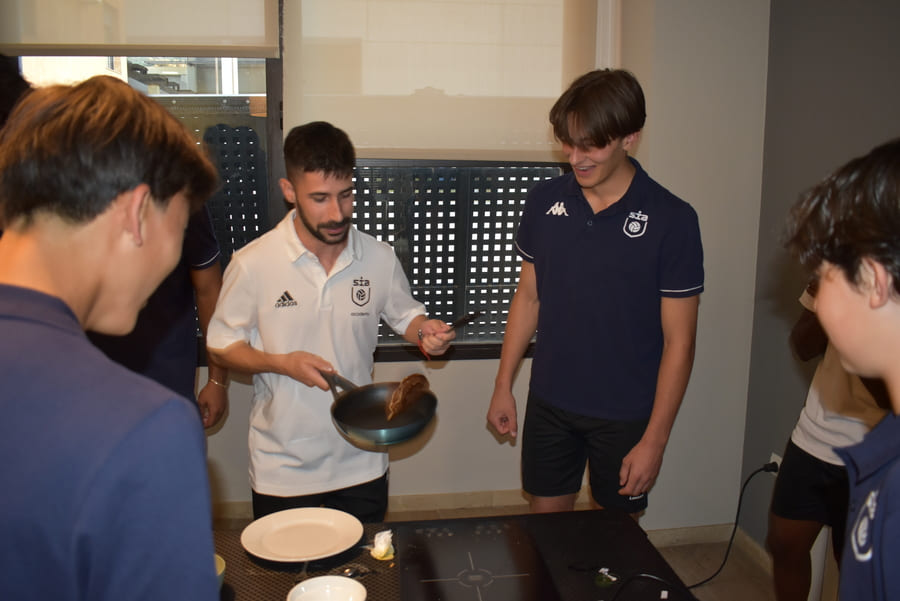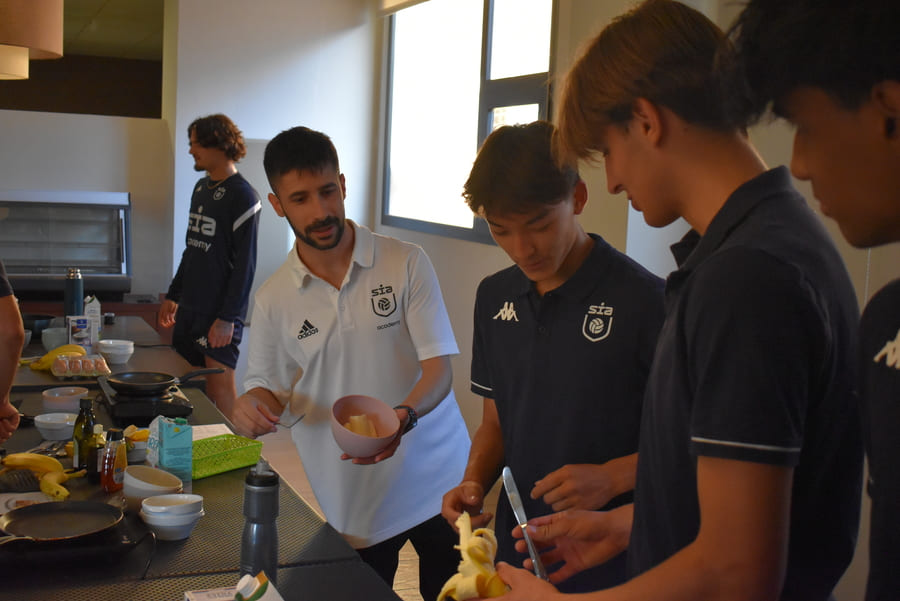
Table of contents
Introduction:
Nutrition plays a fundamental role in sports performance, especially in disciplines such as soccer. Children and adolescents who practice this sport have specific nutritional demands according to their stage of growth and development. Proper nutrition can make a difference in their performance on the field and their ability to reach their full potential. In this article, we will explore in detail what nutrition should be like at each age to achieve high performance in soccer.
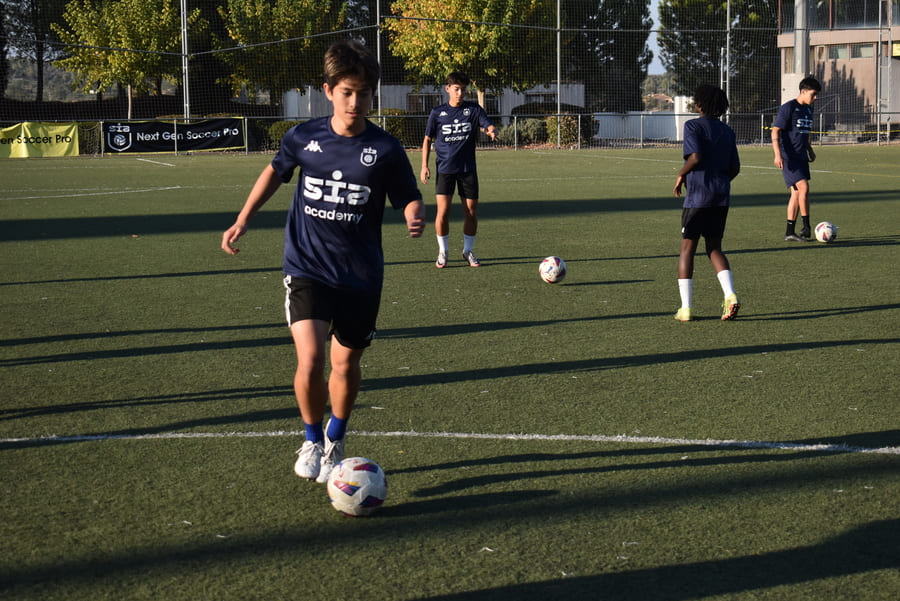
1. Children (6-12 years):
During childhood, it is important to instill good eating habits that lay the foundation for healthy development. Children at this stage need a balanced, nutrient-rich diet to support their growth and provide them with the energy needed to play soccer.
-Hydration:
Adequate hydration is critical for physical performance. Children should drink water regularly before, during and after exercise. Sugary drinks and carbonated soft drinks should be avoided.
-Carbohydrates:
Carbohydrates are the main source of energy for children at this stage. Healthy sources such as fruits, whole grains and vegetables should be the preferred choice. These foods provide sustained energy and help maintain stable blood glucose levels.
-Protein:
Protein is essential for muscle growth and development. Lean meats, fish, legumes and dairy products should be included in the diet of child soccer players. These foods provide the amino acids necessary for muscle protein synthesis.
-Healthy fats:
Healthy fats are also important at this stage of growth. Sources such as olive oil, avocado and nuts should be included. These fats are essential for brain development and provide energy.
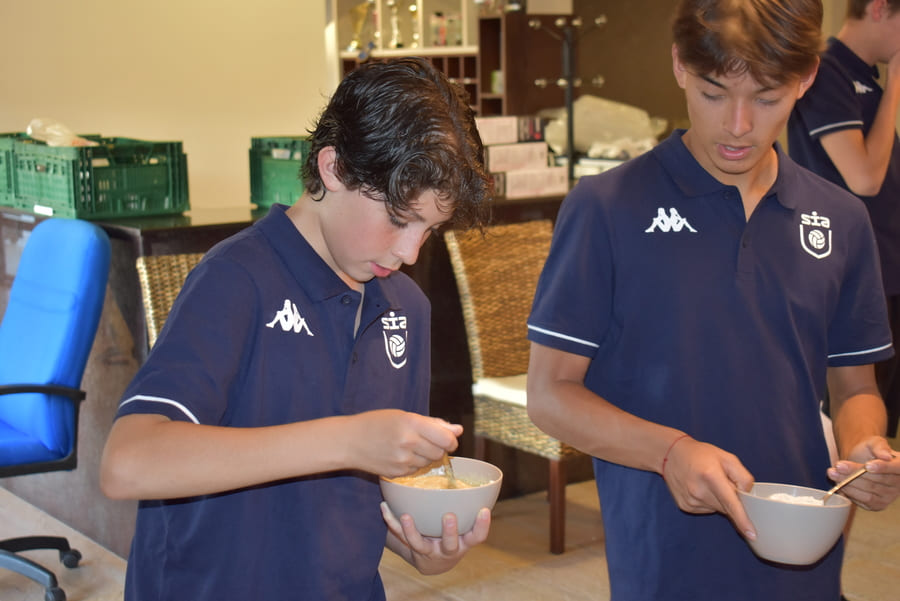
2. Pre-adolescents (13-15 years):
During pre-adolescence, children experience rapid growth and physical development. Their nutritional needs increase and it is crucial to provide them with the right nutrients to support their growth and muscle development.
-Hydration:
Hydration remains critical at this stage. Pre-teens should drink water regularly, especially during intense exercise. In addition to water, sports drinks can be included to replenish electrolytes lost during intense physical activity.
-Carbohydrates:
Carbohydrates remain the main source of energy. At this stage, carbohydrate intake should be increased to meet increased energy demands. Foods such as rice, pasta, whole grain bread and cereals can be included to provide the energy needed for sports performance.
-Protein:
Protein remains essential for muscle growth and recovery. Lean meats, fish, eggs, legumes and dairy should be included to ensure adequate protein intake. These foods provide the amino acids necessary for muscle tissue repair and building.
-Vitamins and minerals:
During pre-adolescence, it is important to ensure adequate intake of vitamins and minerals. A variety of fruits and vegetables should be included in the daily diet to provide essential nutrients for growth and the immune system.
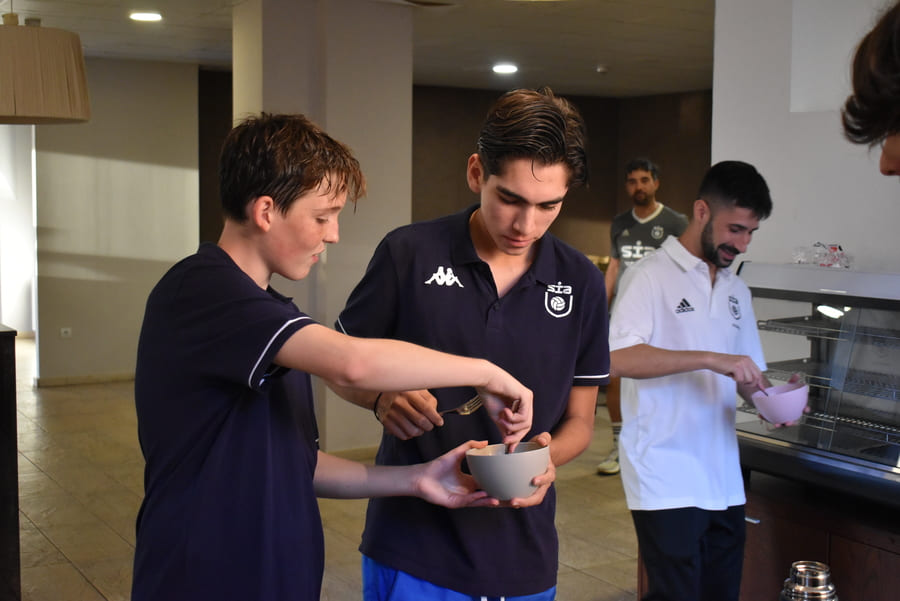
3. Adolescents (16-19 years old):
During adolescence, young people experience significant hormonal changes and an increased level of physical demand. It is crucial to provide them with the necessary nutrients to support their development, promote good health and maximize their performance in soccer.
-Hydration:
Hydration remains critical at this stage. Water should be drunk regularly, and excessive consumption of sugary soft drinks should be avoided. Sports drinks can also be beneficial during intense exercise.
-Carbohydrates:
Adolescents should include a variety of carbohydrates in their diet, such as whole grains, sweet potatoes and fruits. These foods provide sustained energy and help maintain muscle glycogen stores.
-Protein:
Protein remains essential for muscle recovery and development. Lean meats, fish, legumes, tofu and dairy products should be included in the daily diet to ensure adequate protein intake.
-Healthy fats:
Healthy fats are important for maintaining good cardiovascular health and providing energy. Sources such as olive oil, avocado and nuts should be included in the diet of adolescent soccer players.
It is important to note that each individual is unique and may have specific nutritional needs. In addition, the consumption of ultra-processed foods rich in sugars and saturated fats should be avoided, as they can affect performance and overall health.

Conclusion:
Nutrition plays a vital role in the high athletic performance of children and adolescents playing soccer. Ensuring an age-appropriate diet that includes sufficient hydration, carbohydrates, protein and healthy fats is essential to meet energy demands, promote proper growth and development, and maximize soccer performance. Tailoring nutritional recommendations to each player’s individual needs and consulting with a sports nutritionist are important steps to ensure optimal nutrition and peak performance in soccer.
Written By: Cristóbal Camarasa Pérez
Sports Nutritionist



